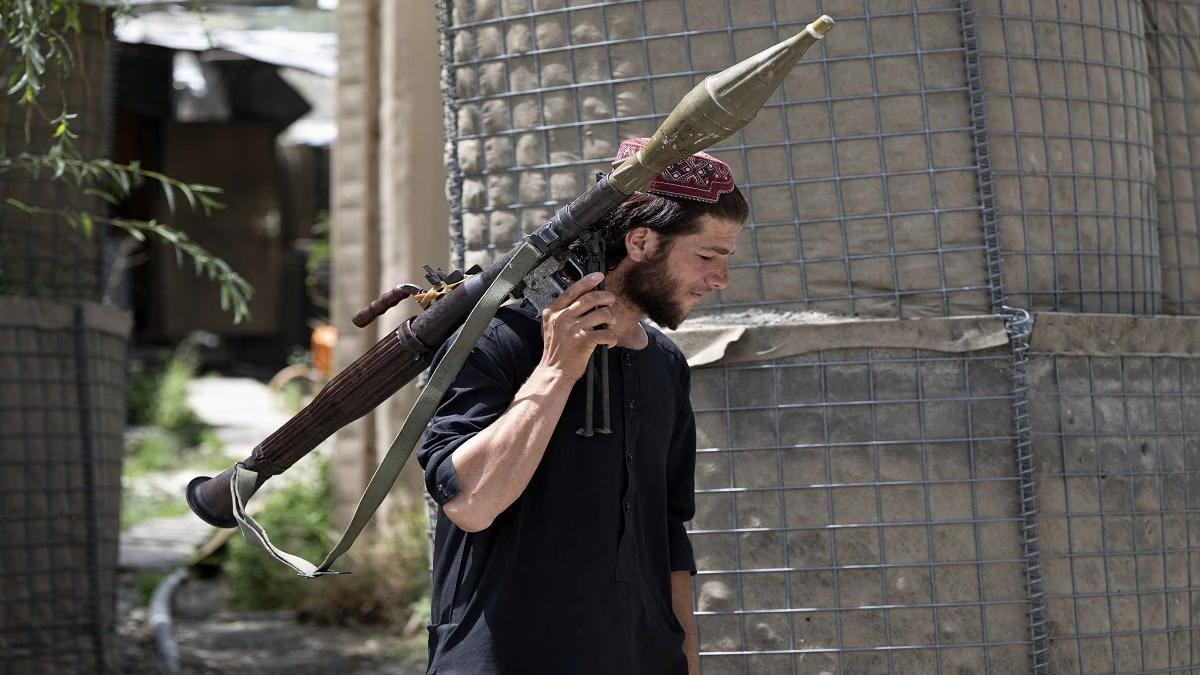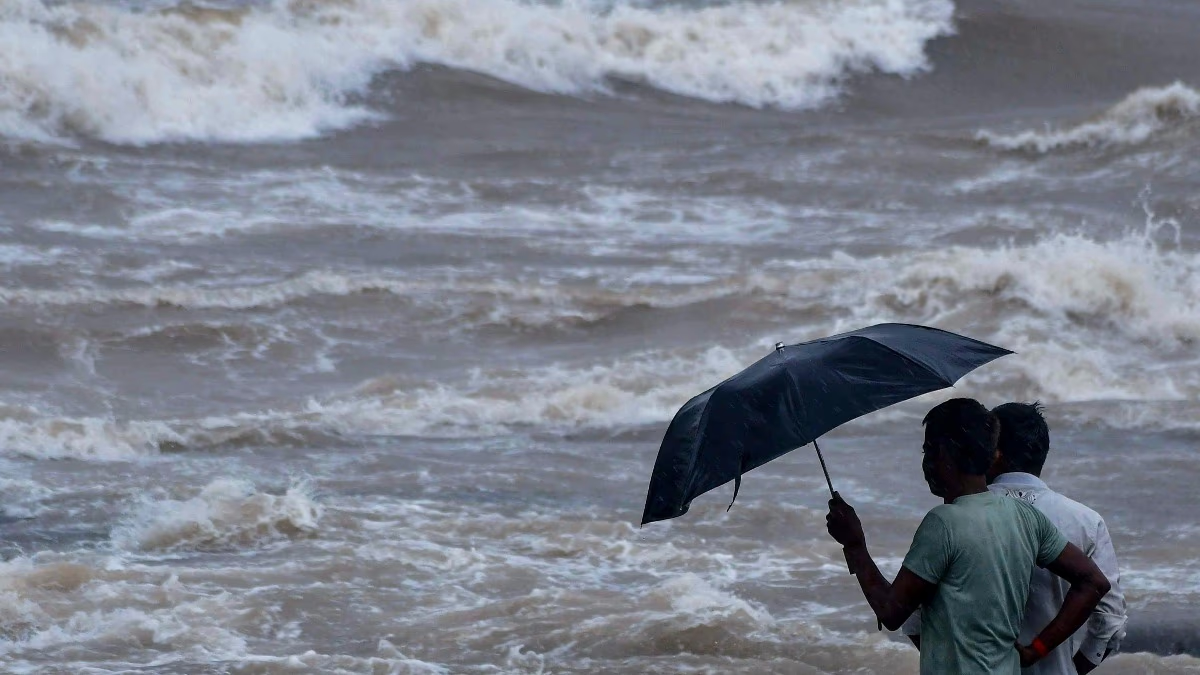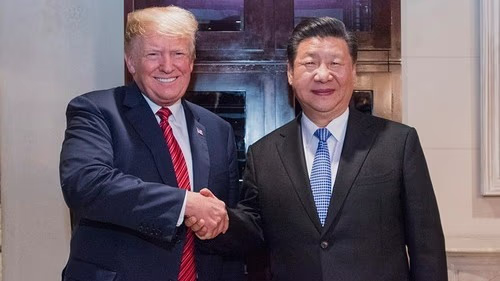A while ago, Afghanistan's Taliban government celebrated three years in power, claiming peace had been restored. Indeed, there is peace, but of the graveyard kind. People live in fear, knowing any rule-breaking could lead to imprisonment. Regular lists of revised restrictions are rolled out, even for the Taliban commanders.
Through multiple sources, aajtak.in spoke with a district-level commander, Ashraf, overseeing intelligence.
The danger of recognition compels us to keep his identity discreet. Ashraf says, ‘Common people face jail if they don’t comply; if I err, it's death for the entire family.’ He mentioned this over phone, WhatsApp, and Telegram, while deleting chats in real-time, stating, ’Ask what you need, I’ll destroy my number afterward.’
This sentiment echo others in Afghanistan. Phones often change hands, especially for those trying to flee the country. No clues are left behind. They avoid phone calls and reduce family visits to prevent suspicions. Bribery facilitates disappearing quietly, leaving homes and lands behind.
The commander, whom we interviewed, is also plotting to escape under the guise of illness.
Reflecting on past days, Ashraf reminisces, ‘During the Republic era, I used to teach girls. Even then, the Taliban spread like termites. In my position, I was already aware of their advance.
I grew a beard, prepared my daughters for the worst, ensuring they wouldn’t break down being confined at home. But what troubled me most was that I would soon enforce these rules and regulations myself. As the government fell, I became part of the Taliban’s intelligence operations.’
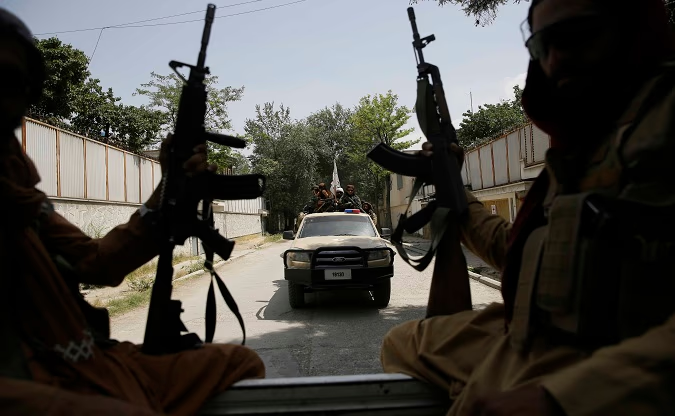
Source: aajtak
My role now involves monitoring connections to Al-Qaeda, ISIS, or any terrorist groups. We also tackle corruption and embezzlement. Rebellions are on our radar, too.
When intelligence is gathered, I don't deliver the punishment; subordinates do. For significant crimes, upper authorities decide. The office hours are from 9 AM to 3 or 4 PM. That’s what I’m paid for.’
So why do you do this? What compels you?
Educated individuals are their first targets. Extremists fear that these people might incite others. Well-read individuals are systematically removed from positions. Faced with harassment, some willingly joined the Taliban. Leaders met with me, valuing my communication skills and reputation. I had no choice. With work scarce and refusal meaning death, I've been here since.
Ashraf shares he even attempted escape. Contacts abroad were willing to help, but his wife refused. She's deeply religious and values her life within the confines imposed.
Women born during the Soviet War share similar thoughts. Streets were battlegrounds day and night. Women trying to leave either disappeared, were assaulted, or found dead. Nobody knew who committed these crimes.
For both Afghan and Soviet fighters, women were like a puff of a cigarette to be enjoyed amidst work.
This time reinforced the segregation. From six-month-olds to sixty-year-olds, everyone stayed indoors. Over time, it became routine. Bright clothes or fresh air unsettled women from that era, compelling me to stay. Small pauses break our conversations, followed by photos or voice notes with sectors mentioned.
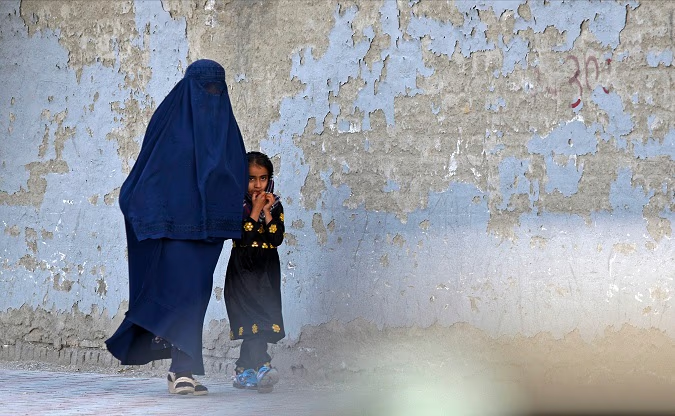
Source: aajtak
A video arrives via phone showing a bazaar with women shrouded in veils shopping. The commander adds, ‘Earlier, things were open. There were walls of rules but with many windows. Now, everything is restricted. Like a pebble in the shoe can unsteady a person, so has this affected the pace of life.'
What were the early days of Taliban rule like?
Toxic relationship! That's how outsiders describe it. I’ve heard it in films. It was similar. The Taliban came with promises not to repeat past mistakes. But within days, these promises faded. Prisoners were released indiscriminately—thieves, murderers, and terrorists spread across cities.
These were Taliban supporters. Soldiers had fled. Police stations were looted.
I became a commander, wore a beard, and echoed the Taliban's voice, gaining their trust, but only initially. It was like sudden rain with birds having no nests for shelter. We all halted.
I fear leaders suspecting me any day, demanding my phone. If I linger, my family's safety is at risk.
Patience isn't an option. Even if my wife refuses, I’ll take the children and leave for Turkey, Tajikistan, or Syria, seeking refuge. My skills in teaching would find a place there.
Data shows a sharp rise in those leaving Afghanistan post-Taliban takeover. UNHCR reported over 700,000 departures in 2022 alone. In 2023, the trend continued, with 48% of emigrants being women and girls.
This includes many who departed only to be returned with no property left.
Many were expelled from Pakistan lately, too. By then, assets were lost, homes seized by militants. They could even face espionage accusations for being educated or forward-thinking.
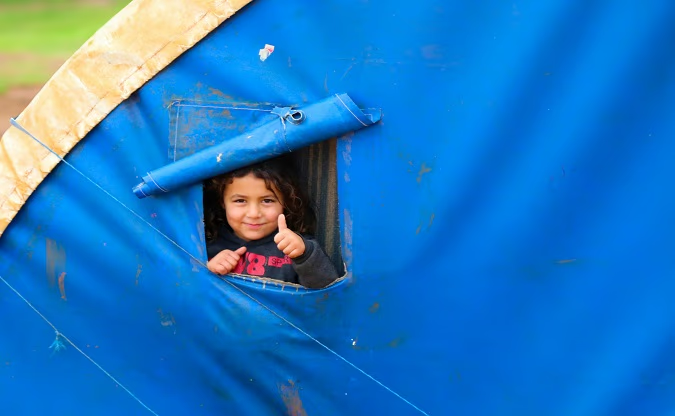
Source: aajtak
Ashraf says, ‘Leaving the country isn’t blocked for ordinary people. The common folk hold no secrets. Roles like mine forbid departure. News of my intent to leave means immediate detention and interrogation.’
A video is received mid-conversation on Telegram with a voice note detailing the place and individual involved. It's a minor infraction. The man was flogged until near death. For my mistake, like sharing secrets with a foreign woman, execution at a crossroads awaits.
There’s no shortage of informers. From teaboys to drivers, anyone could be spying. Rewards are their lure.
The Taliban grants power but not money.
My salary is 25,000 Afghanis, barely enough for a family. I have weak connections, receiving nothing extra. Others thrive with allowances, prizes alongside fixed pay.
What do weekdays look like?
Our weekend is Friday. Apart from worship, we stay home, eat, or dream of escaping. It was different before. Streets buzzed with life from morning, cafés overflowed with aromas, songs filled the air. Now, if funds allow, we visit relatives in other towns for solace or stay home, cooking and conversing with kids.
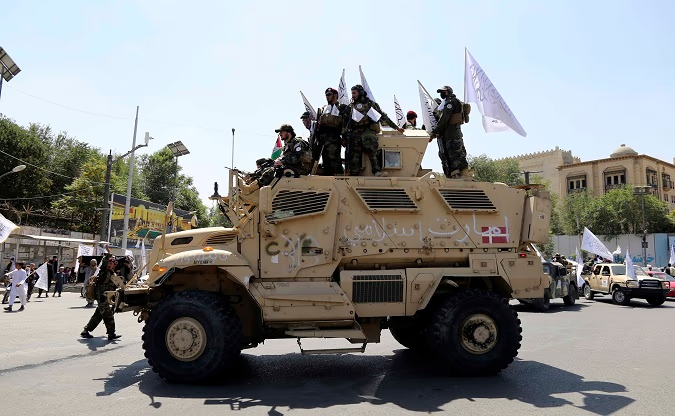
Source: aajtak
Online translators help me drudge through the Farsi chats. Delayed questions prompt anxious requests to save the conversation for deletion. Soon, the screen goes blank, only a sentence flashes – time for warnings. I must leave. We’ll talk in the evening.
Under Taliban rule, no tests exist for jobs like mine previously.
If you have connections, you enter intelligence. Knowing Islamic laws lands you in moral policing. Tasks were assigned based on experience and influence. Now, stricter measures are in place. Comprehensive backgrounds are checked, but zeal remains a prerequisite. Show fervor, and you’ll thrive.
If you're with the Taliban, why detest them?
The Taliban is neither wholly Islamic nor civil. They assert control through violence. Women were their first conquest, followed by instructing men to enforce women's compliance. My mother, wife, daughter—all confined for three years. For women, changing seasons involves selecting season-appropriate clothes or cooking seasonal dishes. Sunrises or sunsets are luxuries seen only when no men are around.
If someone offends, what's your department's penalty?
The penalty varies based on the crime. Minor offenses may result in flogging or imprisonment. Connection with terrorist groups equals death. I avoid harsh penalties, often warning offenders and reporting those abusing power.
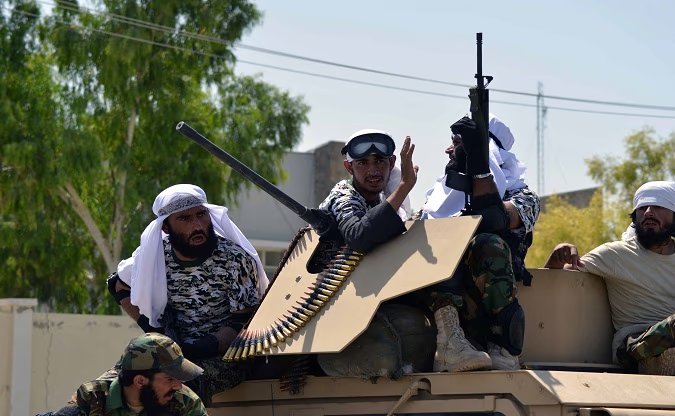
Source: aajtak
Amidst discussions, Ashraf reveals Afghanistan’s detention centers, housing rebels. But he divulges little, saying ‘Understand that people like you and me are held there.’
UNAMA reports Taliban detention centers in several provinces, containing activists, journalists, and more. Accusations from the UN state prolonged detentions without legal support. The US Department of State mentioned disappearances after capture. Reports mention severe abuse and torture in Taliban centers.
Describing dangers, Ashraf mentions ‘Consider us racing across land laced with explosives. A wrong step, and we’re blown to pieces.’
The work I do is perilous. Those we monitor also monitor us. It’s a game of who makes the first move. Taliban is hard on Al-Qaeda and ISIS. Linking with them risks attacks from our own. I can't return to teaching. Although some students contact me, others fled with the Taliban takeover. Many forgot, losing themselves in domestic activities. I remain, training others in arms, forgetting books. I attempted an online class, but fear is rampant. Educated women scare the Taliban more than weapons. ...
Amid driving, I reminisce about days long washed away from this nation. Vibrant murals replaced by instruction posters, colorless, faceless—these describe today’s Afghanistan.
Mid-conversation, a photo arrives via Telegram—a sky captured through a car window. Perhaps these solitary moments transform the commander back into a teacher.
While working on this report, news came from Afghanistan. Displaying images of living beings – humans, animals, birds is now prohibited.
